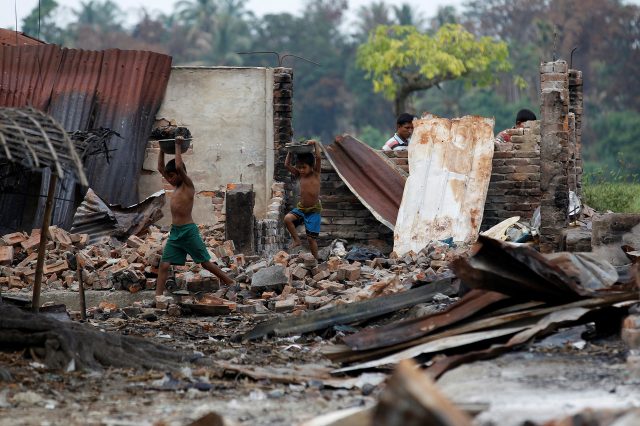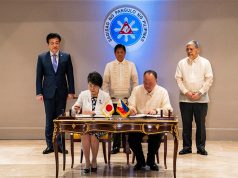
China offered on Tuesday to help tackle a diplomatic row between Bangladesh and Myanmar over the flight of minority Rohingyas, two Bangladesh foreign ministry officials said.
Around 69,000 Rohingyas have fled to Bangladesh to escape violence in Buddhist-majority Myanmar since October, straining relations between the two neighbors who each see the stateless Muslim minority as the other nation’s problem.
Chinese special envoy Sun Guoxiang, beginning a four-day trip to Bangladesh, urged Dhaka to resolve the row with Myanmar bilaterally, but also said Beijing stood ready to help in the matter, a foreign ministry official in Dhaka told Reuters.
Sun made the proposal during a meeting with Bangladesh Foreign Secretary Shahidul Haque, the official said. He declined to be named, saying he was not authorized to speak to the media.
“The envoy told us at the meeting that they were ready to help if necessary,” the official said. Another foreign ministry official confirmed the information but also asked not to be named, citing the sensitivity of the matter.
China has strong ties with both Myanmar and Bangladesh, helping in infrastructure development in both countries. Relations with the former have warmed further since Myanmar President Htin Kyaw struck a deal in China on an oil pipeline between the neighbors after almost a decade of talks.
Beijing has established a strong presence in Bangladesh, building roads and power stations and supplying military hardware.
During the talks on Tuesday, Foreign Secretary Haque told Chinese envoy Sun that Bangladesh welcomed Chinese efforts to tackle its problems with Myanmar stemming from the influx of Rohingyas into Bangladesh, the officials said.
Dhaka has proposed that Sun travel to Cox’s Bazar near the border with Myanmar to see the plight of the tens of thousands of people camped there. China’s ambassador to Bangladesh, Ma Mingqiang, visited a Rohingya camp there in March.
Myanmar has faced growing international criticism over the latest eruption of violence against the Rohingyas. Myanmar’s government has conceded some soldiers may have committed crimes but has rejected charges of ethnic cleansing.









